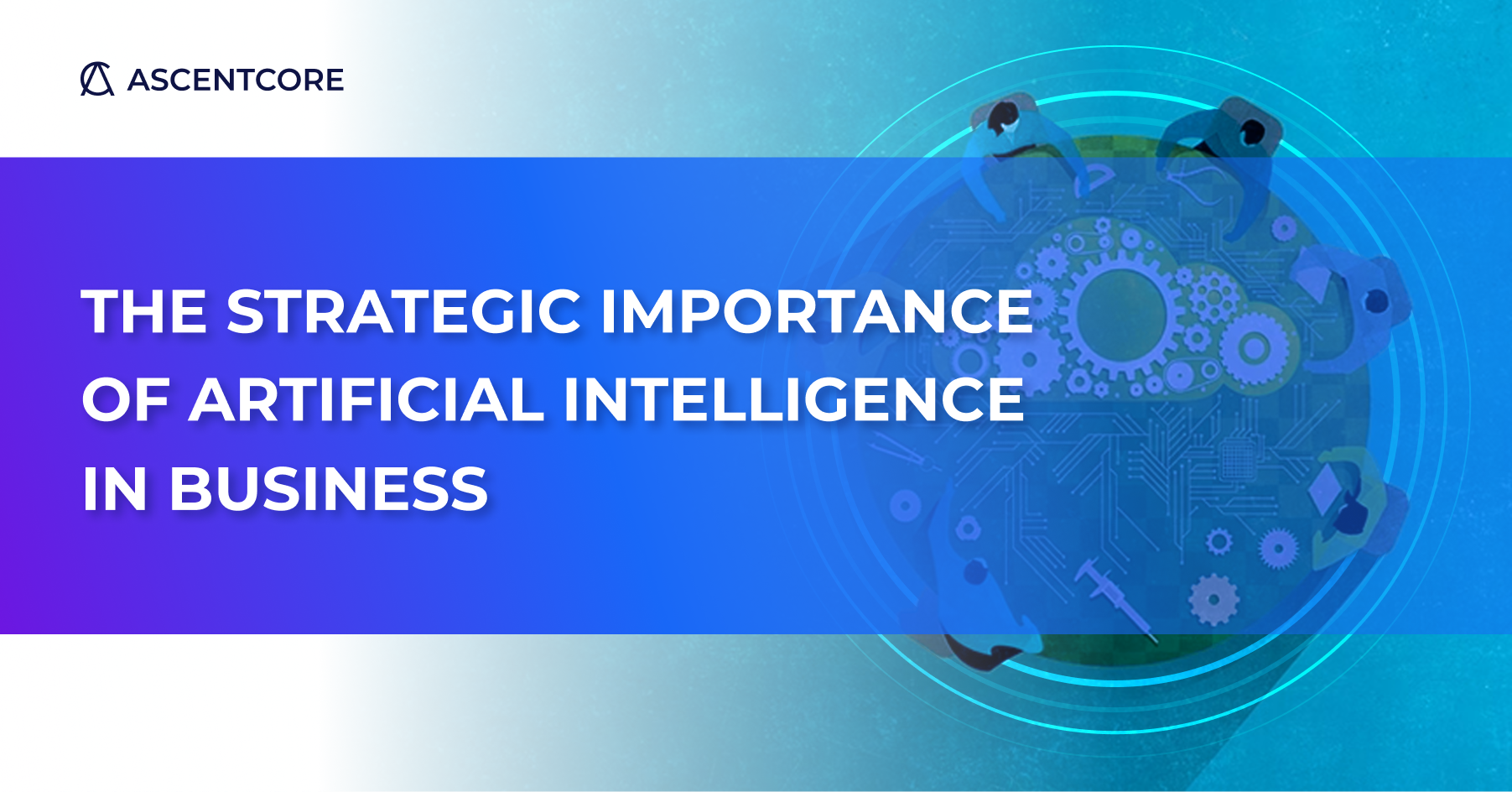In recent years, artificial intelligence (AI) has evolved from a concept found only in science fiction novels to a tool imperative for businesses across various industries. The rise of artificial intelligence in business is reshaping how enterprises operate, make decisions, and compete in the market. Keep reading as we explore the rise of AI as a strategic business imperative and its impact on specific industries.
The Strategic Importance of Artificial Intelligence in Business
AI has grown to encompass various technologies, including machine learning, natural language processing, robotics, and computer vision. The business imperative for AI arises from its ability to analyze vast amounts of data, identify patterns, and make decisions with speed and accuracy far beyond human capabilities.
AI has become a cornerstone of modern business strategy for several reasons, including
Enhanced Decision-Making with AI
Artificial intelligence in business has grown to encompass various technologies, including machine learning, natural language processing, robotics, and computer vision. The business imperative for AI arises from its ability to analyze vast amounts of data, identify patterns, and make decisions with speed and accuracy far beyond human capabilities.
AI-Driven Innovation
AI fosters innovation by uncovering patterns and trends that humans might miss. It opens new avenues for product development, service enhancement, and business models, driving growth and competitiveness. For instance, AI algorithms can predict market trends, helping businesses stay ahead of the curve and make strategic decisions that foster innovation.
Staying Ahead of the Competition
As AI adoption becomes more widespread, companies that fail to integrate AI into their businesses risk falling behind competitors who leverage AI for efficiency, innovation, and customer engagement. Businesses that embrace AI can analyze consumer behavior, predict market demands, and optimize their operations to stay competitive.
Operational Efficiency Through AI
AI-powered automation streamlines processes, reduces errors, and lowers costs. AI improves operational efficiency across the board, from chatbots handling customer inquiries to robots managing warehouses. For example, AI algorithms can optimize supply chain operations, ensuring timely product availability and reducing inventory costs.
Personalization and Customer Engagement
Artificial intelligence in business allows companies to offer highly personalized experiences to customers. By analyzing user behavior and preferences, businesses can tailor their products, services, and marketing efforts to individual needs, enhancing customer satisfaction and loyalty. AI-driven personalization can lead to higher conversion rates and customer retention.
The Impact of AI on Specific Industries
Finance
The finance industry leverages artificial intelligence in business for fraud detection, risk management, and customer service. AI algorithms can monitor transactions in real-time, identifying suspicious activities and preventing fraud faster and more accurately than humans alone. In investing, AI helps brokers and traders analyze market trends and predict asset performance, aiding in informed investment decisions. AI-powered chatbots and virtual assistants provide instant responses and personalized financial advice, enhancing customer service and allowing finance professionals to focus on strategic work.
Healthcare
AI is revolutionizing the healthcare system by improving diagnostics, treatment, and patient care. Machine learning algorithms help analyze medical data to identify patterns and predict outcomes, aiding in early disease detection and personalized treatment plans. AI-powered robots assist in surgeries, enhancing precision and reducing patient recovery times. Administrative tools driven by AI streamline workflows, reducing the burden on healthcare professionals and allowing them to focus on patient care.
Manufacturing
Artificial intelligence in business is driving the next industrial revolution in manufacturing through predictive maintenance, quality control, and process optimization. Machine learning models analyze data from sensors embedded in machinery to predict maintenance needs, preventing costly breakdowns and downtime. Computer vision systems inspect products for defects with higher accuracy and speed than human inspectors. AI-driven process optimization reduces waste, improves efficiency, and enhances overall productivity on the production floor.
Retail
In retail, AI transforms the shopping experience by offering personalized recommendations, optimizing inventory management, and enhancing customer engagement. Machine learning algorithms analyze customer data to suggest products based on preferences and purchase history. AI-powered chatbots and virtual assistants improve customer service by addressing inquiries and guiding purchases. AI optimizes supply chain operations, reducing costs and ensuring timely product availability.
Future Prospects of AI in Business
Looking ahead, artificial intelligence in business will only grow as technology advances. Industries will find ways to further integrate AI into their operations, creating more intelligent, efficient, and innovative ecosystems. Enterprises that choose to avoid embracing AI may find themselves losing pace in the dynamic and competitive landscape of the future.



